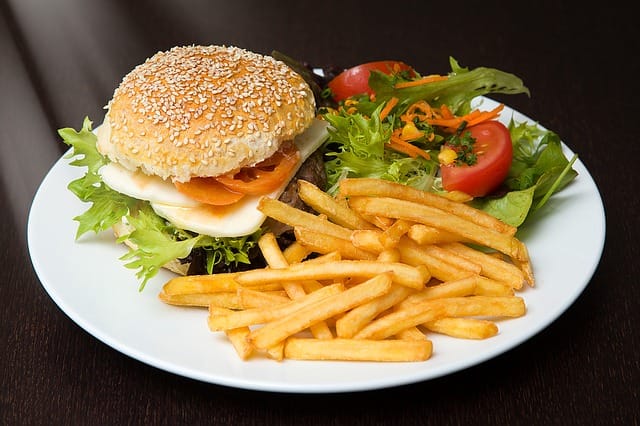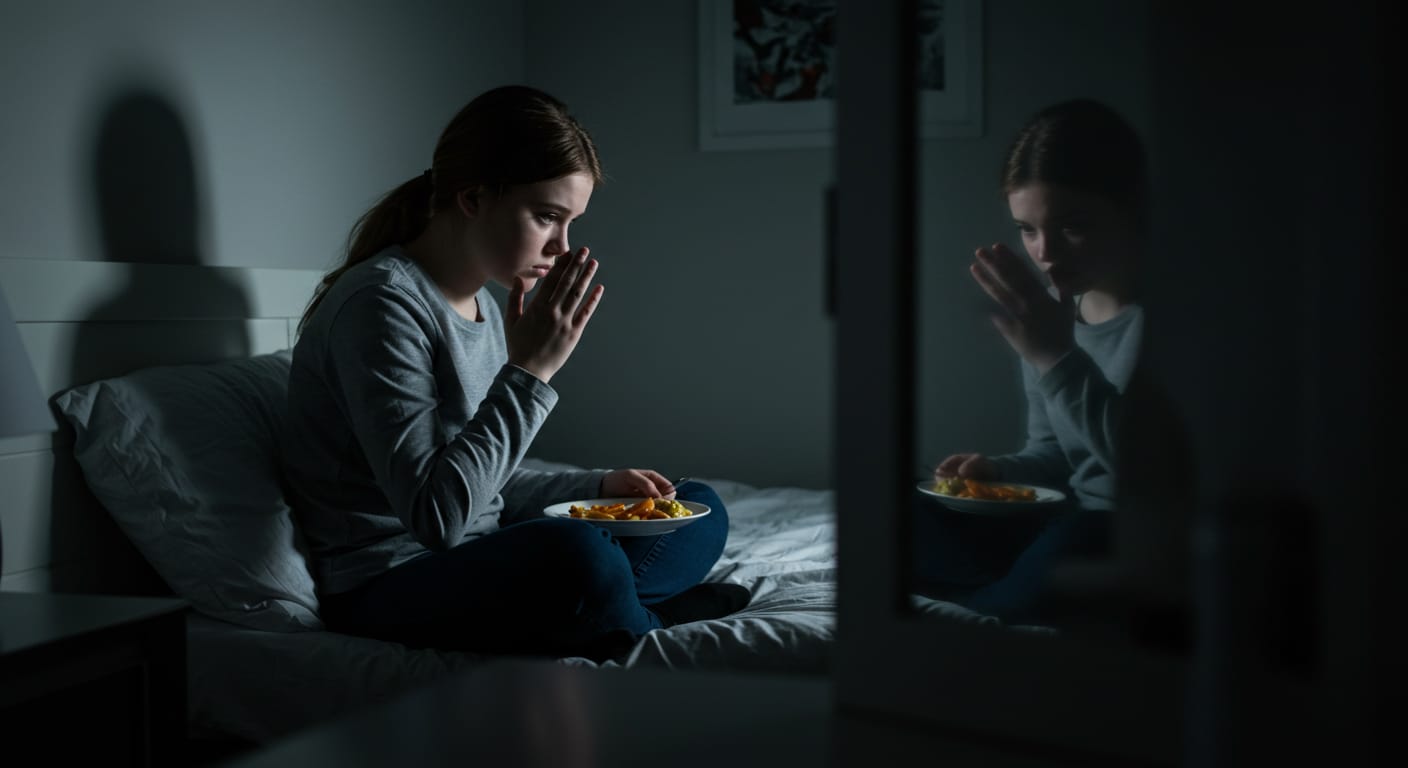Mild Eating Disorders: A Silent Signal of Depression
Depression and mild eating disorders often go hand in hand, especially during adolescence—a time when teenagers begin asserting their independence. This transitional phase can be confusing for parents and caregivers. Is your teen just “going through a phase,” or are they showing signs of a deeper emotional struggle?
A decrease in food consumption, unusual eating patterns, or rapid weight changes may indicate an underlying eating disorder linked to depression.
“Every weight loss program, no matter how positively it’s packaged, whispers to you that you’re not right. You’re not good enough. You’re unacceptable and you need to be fixed.” — Kim Brittingham
Warning Signs to Watch For
Mood Swings
-
Sudden emotional shifts—your teen may swing between happiness and sadness over long periods.
-
A loss of interest in activities they once enjoyed.
-
Excessive feelings of guilt, worthlessness, or sensitivity to criticism.
-
Irritability, anger, and hostility that feel unprovoked.
[“Mood swings: Your child can be happy & sad for a period of time.”]
Behavioral Changes
-
Persistent physical complaints like stomachaches or headaches.
-
Avoiding food or binge eating in secret.
-
Noticeable weight loss or gain without a clear reason.
-
Isolation—spending too much time alone or behind closed doors.
-
Fatigue, lack of motivation, and disengagement.
-
Thoughts or mentions of death and suicide.
[“When your child is going through depression, they may not want to eat or drink.”]
Depression in Action: What It Can Look Like
-
Substance use: Teens may turn to alcohol or drugs to numb emotional pain.
-
Running away: Talking about leaving home or actual attempts can be cries for help.
-
School problems: Skipping school, poor grades, or lack of focus in class.
-
Risky behavior: Careless driving, substance abuse, or unsafe sex.
-
Aggression: Sometimes depression presents as explosive anger or violence.
Eating Disorders and Their Triggers
Eating disorders like anorexia, bulimia, and binge eating often stem from more than just body image concerns. Emotional distress, trauma, rejection, or media pressure to conform can all contribute.
Social media often idealizes unrealistic body types, creating pressure to look “perfect.” Teens may begin altering their eating habits to fit into these narrow standards, leading to emotional and physical damage.
How You Can Help
As a parent, teacher, or concerned friend, your awareness can make a difference. Don’t ignore early warning signs. These behaviors aren’t “just phases.” They’re silent cries for help.
Steps to take:
-
Start a non-judgmental conversation.
-
Express concern, not criticism.
-
Encourage them to speak to a mental health professional.
-
Remind them that they’re not alone, and help is available.
Eating disorders and depression are treatable. Early intervention can change—and even save—a life.



With all the pressure out there to be thin, I totally get why these poor girls are starving themselves.
Robin Rue (@massholemommy), So true a lot of teens want to be like that thin model that society few as glamours.
I went through severe depression as a teen. I did not want to eat and lost a lot of weigh.
Tara Pittman, You made it and I am glad you are here to share your story.
The sad thing I have learned …all be it a touch to late… is that most depression is caused by vitamin deficiencies. Instead of filling teens and kids with drugs. Have their blood work done. Almost a guarantee they are lacking some B12…just to begin with. That was my story anyways.
Lizz H, Your point is well said since I cannot diagnose I can’t comment about B12 & depression. Glad the doctor was able to rule out vitamin deficiency for you.
I suffer from depression and although mine is not linked to weight it is partially associated with body image. Unlike most people I don’t want to lose weight I want to put on weight because I don’t like how slim I am. Words like ‘skinny’ or ‘bag of bones’ have been used to describe me on many an occasion and what they don’t realize is that I am naturally slim.
Ana De- Jesus, Try to ignore the negative people say about you being skinny they use to tease me about being too fat. I understand this can make you depressed. If your depression become so overwhelming seek some form of support if you already don’t have any. Don’t let those Bully devalue you. You are smart and beautiful and you are a sucess.
There are a lot of pressures on teenagers from society and their peers. It’s important to provide positive reinforcement and especially with young women to let them know that the standards set by Hollywood are ridiculous and impossible to meet.
Teen depression does have some bad effects. Helping with a healthy diet is one good way to help.
So important to look for the signs as an eating disorder can be a very serious side effect of depression.
As a teen I suffered from Anorexia. the weekly Dr.s Visits, the eating programs.. All still so much on my mind.
Dana Vento, Thanks for sharing your personal story…Keep talking and help others.
This is a great post that I hope raises awareness of these issues.
Depression is such a huge issue that need continued support
This is true. My cousin had an eating disorder back when we were teens and none of us thought she was suffering from depression. I think it was our school’s guidance counselor that saved her. Her teacher started to notice different things about her and she made sure my cousin spends time in the counselor’s office at least an hour a day. After a few weeks, we noticed the difference and she was back.
Ourfamilyworld, I am glad to hear your cousin got help for her eating disorder and the school counselor was able to help.
This is a serious issue. Parents should be able identify this problem and talk with their kids.
Rika, It’s not easy for Parents to identify the problems teenagers are secretive.
It’s really important to focus on your growing teenager. Keep their feelings in check on a regular basis and make sure that they feel the love and support that you are giving them.
These are great post and parents should know about this if their child was in the process of Teen Depression. Other teens was really violent to their self
It’s so important for parents to be vigilant about depression. The earlier that a child gets treatment, the better.
Erika, So true the earlier we treat the teen eating disorder along with depression the better.
Another very important topic to cover! Keep up your awesome work!
Glad you like and thank you Claudette.
I was diagnosed with Depression when I was a teenager. Luckily, it did not interfere with my eating or drinking but I can imagine it would have made recovering even harder.
Shaylee @ Data Nerds, Depression did not affect eating habits this is a good thing so many teens struggle with both you are fortnuate.
Sometimes parents inadvertently pass their own body issues on to their kids without even realizing it. If you grow up watching someone battle their weight and continually diet this can lead them to believe this is what is normal behavior.
Danii, I believe this to be true children love to imitate their parents.
Depression launched me into an eating disorder as a younger person. I just hate that there’s a tie-in between the two!
Thank you for discussing such an important topic. With the increase in violent crimes and suicides due to mental illness, depression, and/or peer pressure, among other things, it’s important for parents and other authority figures to know what’s going on so they can help before it’s too late.
These are all great suggestions for helping identify depression in teens. It’s also useful in helping identify it in adults too. Depression affects so many but with good exercise, journaling, professional counseling, support from friends, and support from family it can certainly be overcome.
Jonathan Key, Teenage depression most misunderstood by Parents who seems to think it is a phase. Celebrities exposures about teen depression and the media focus may help Parents to take this serious.
Great information. It’s so important to be open with kids especially when it comes to depression that could lead to an eating disorder.
Have you found that sometimes the foods they eat are all making their depression worse?
Karen, I am not sure about the food & depression but will research this topic thanks.
I have a pre teen, thanks for the post
This is really insightful. I appreciate the information as it is something I admit to having very limited knowledge of. I think there are so many pressures on teen-agers today, maybe more so than ever before. This is so good to be aware of!
You are so right…..this is something that needs to be out there as “okay” to talk about. Depression can be very isolating and it’s comforting for teens (adults, too) to know they are not alone.
Such a necessary topic that is often brushed under the carpet. I wish my parents had paid closer attention to my mental health when I was a teenager instead of just calling me a drama queen all the time. I didn’t understand it then but coming to terms with my teenage depression was an eye opener for me.
Joelle, Parents are starting to take notice for some when its too late. Thanks for your support.
Great information. Sadly, with all the pressures teenagers have, it’s no wonder why they have issues. I remember back in my day, friends battled with eating disorders and depression. Very sad.
Passing this along.
The link between the two is just more reason to combat mental illness!